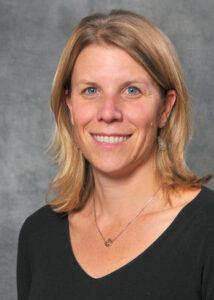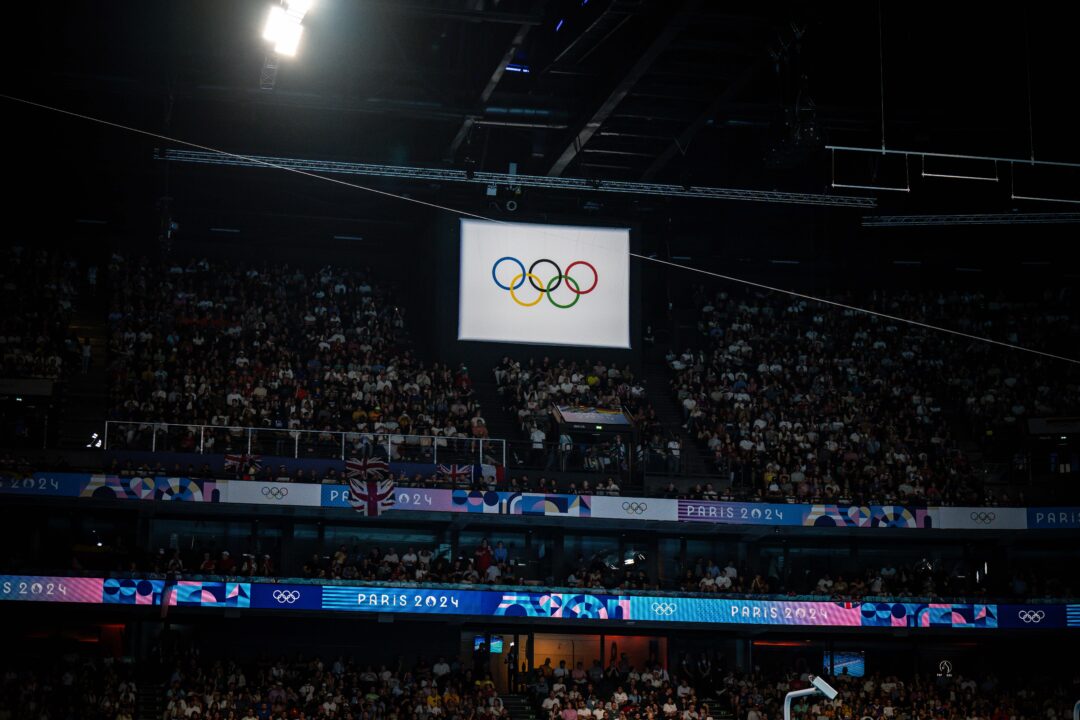Courtesy: Alecia Wartowski
For many athletes, being a part of the Olympic Games is a dream they have had for much of their life. There have been sacrifices and a singular focus to get to this moment and to try to do the thing you have wanted more than anything.
I should know.
Thirty years ago, I was an elite competitive swimmer, trying to make my first Olympic Games. With three NCAA titles, a world ranking in the top eight, and experience on the National team, my odds were decent. But despite taking a year after my college eligibility ended to focus on this one dream, I didn’t make it. And so, in that single moment, I was retired. But as one door closed, I needed to understand what door to open next.
Swimming toward an Olympic dream is hard, but retirement may be harder.
The next morning, I woke up unanchored. If I wasn’t a swimmer, what was I? What do people do with their time when they are not training four hours a day and thinking about training during the other twenty? Would anything ever be able to give me the challenge and thrill that swimming had provided for the past 16 years?
The thing I loved most about being a competitive athlete and swimming was pushing myself to do the impossible. Going beyond what I had imagined, being tough when things were difficult, and seeing the often straight line correlation between how hard I worked and how much I achieved.
Real life didn’t feel that simple.
I looked for the challenge, the thrill, the grind of hard work, and the satisfaction of a job well done. I started as a youth worker and then moved to law school and eventually became a legal aid attorney. I found that I could work hard, be tough, and push myself. But something was still missing and I was still a bit lost.
And maybe this is where I was mistaken. The joys I had in being an athlete were about focused determination. Mental toughness. Finely tuned efficiency in everything I did. I was in control at all times and fiercely determined to let nothing get in my way.
What if the post-retirement challenge was not to replicate what had served me while I was an athlete, but to try to build some of the skills that had a lesser role at all in my athletic career?
Here are some things I never thought about as an elite athlete: vulnerability, unstructured time to daydream, doing things just for fun, connecting with people who were different from me because human connection is a different kind of adrenaline rush.
In the 30 years since competing as an elite athlete, I have experienced some of the most rewarding moments in my life and developed a set of skills that I could never have imagined had existed as a swimmer. Those changes did not come from simply embracing the skills I had developed as a swimmer. The most profound rewards have come as I have tried to embrace the skills I could not have imagined having as an elite athlete.
So if you are newly retired and feeling at a loss, I want you to know that you are not alone. The transition to a life after elite athletics is different for every single person, and it’s hard. At the same time, I found it to be the most rewarding gift of my life.
As the sporting world has talked more about mental health and vulnerability- from Simone Biles to Michael Phelps- there seems to be an opening to find more room for both toughness and vulnerability. But I can’t imagine that it’s that much easier than when I was competing. Those brave athletes are the outliers, not the norm. For so many of us, being open to vulnerability can only come after we have concluded our athletic pursuits. But this is also where the opportunity lies. If you are lost as an athlete in the post-retirement world—thinking about a comeback, trying to find a high adrenaline career, then consider this pivot: embrace the new. I urge you to take a step back and pause. There will no longer be screaming fans. No more single-goal intensity. The adrenaline of a 9 to 5 job is nothing like that of the starting block.
Use the opportunity to be still and begin to figure out what you care about. What parts of yourself have you not had the chance to nurture? The answer might not seem obvious. They might be faint whispers. But keep listening. Embrace new experiences that have little in common with your athletic identity. The things that made you a great athlete will help you on your new journey- hard work, and determination. But mixing in new skills – vulnerability, curiosity, and awe – may open doors you never even knew.
ABOUT ALECIA WARTOWSKI
 Alecia (Humphrey) Wartowski is the Founder and Principal of Flip Turn Consulting, a coaching and consulting firm dedicated to supporting people and organizations in exploring gender equity and racial justice work. She is also the Executive Director of Foundation 65, a foundation focused on strengthening public education by investing in educators to address racialized disparities. As a competitive swimmer at the University of Michigan she was a three-time NCAA champion, a 12-time NCAA All-American, and a member of the US National Team from 1993-1995. In addition to receiving her B.A. from Michigan, Alecia received her JD from the University of Wisconsin and her EdM from Harvard University.
Alecia (Humphrey) Wartowski is the Founder and Principal of Flip Turn Consulting, a coaching and consulting firm dedicated to supporting people and organizations in exploring gender equity and racial justice work. She is also the Executive Director of Foundation 65, a foundation focused on strengthening public education by investing in educators to address racialized disparities. As a competitive swimmer at the University of Michigan she was a three-time NCAA champion, a 12-time NCAA All-American, and a member of the US National Team from 1993-1995. In addition to receiving her B.A. from Michigan, Alecia received her JD from the University of Wisconsin and her EdM from Harvard University.

Great article Alecia. One can use that advice in so many of life’s challenges. Thank you for sharing
16 years as a Top ( Elite ) Swimmer ! Well done, Alecia Wartowski ! But you can’t remain an Elite Swimmer for too long as the Competition and Standards are so
overwhelming. So you adapt, you adjust, and you keep doing what you love most,
Swimming, but at a much lower level. Do other active things, Run, Walk, Walk a Dog maybe. If you can no longer totally maintain The Faith, then you can always
maintain The Discipline. Work to Live because you have to, Live to Swim, Run,
Walk or any other activity that maintains The Discipline !
Beautifully written and a beautiful message. Thank you!
So well said! To build on this, it wouldn’t hurt all committed athletes (not just the elite) to start developing these other life skills even before their career comes to an end.
Easier said than done, not all Elite Swimmers are as bright as Alecia Wartowski !
Competitive Swimming at The Elite Level, like Competitive Running, or Competition in any of the other Disciplines is a way of life, not a Career. When the end has come the faith goes with it but never The Discipline ! The other stuff is not a way of life, it is simply working to live, so keep swimming, keep active in
in things that can relate to that previous “ Way Of Life, “ be cognisant of Diet, but above all maintain the true way of Life, “ DISCIPLINE ! “